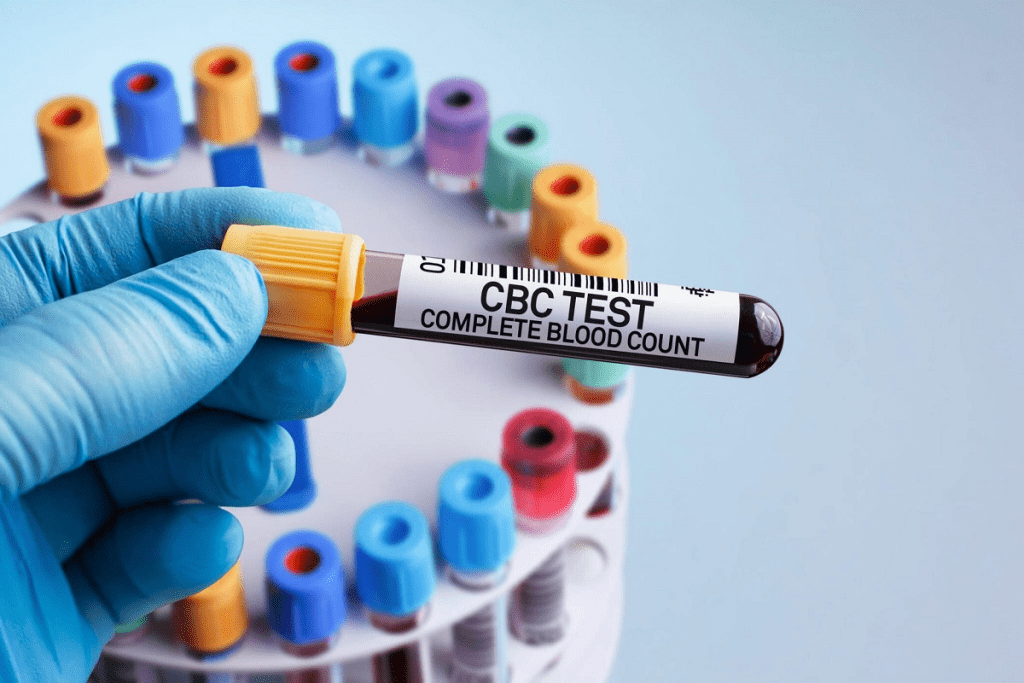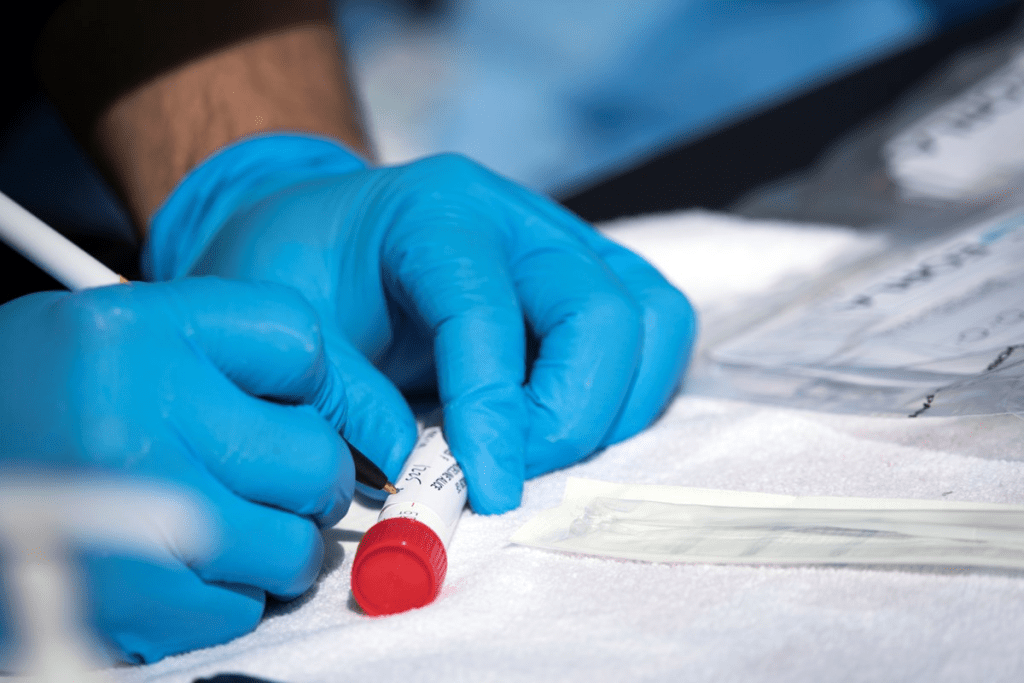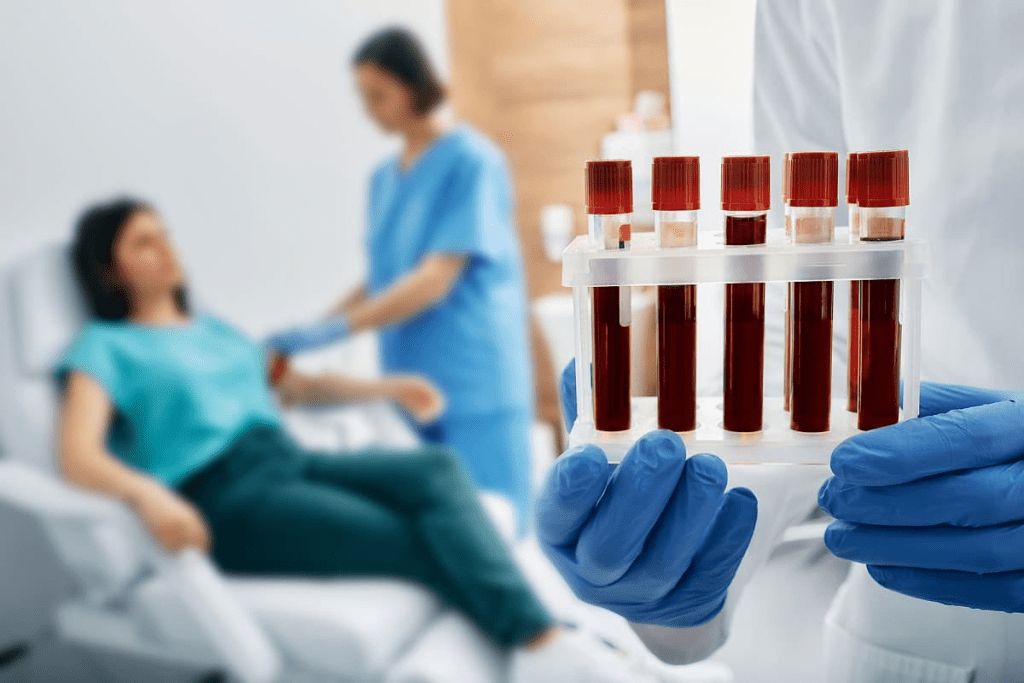Last Updated on October 21, 2025 by mcelik

The Onco panel blood test is a new way to find cancer. It uses next-generation sequencing to look at genes linked to cancer. This gives doctors important clues for diagnosing and treating cancer.
This test looks at a group of genes related to cancer. It gives predictive, prognostic, and diagnostic information for patients with solid tumors. This helps doctors create treatment plans that are just right for each patient. What is the Onco panel blood test? Learn about the oncogenome and this crucial, powerful test used to sequence a tumor’s genetic mutations.
This test is changing how we find cancer. It’s a big step in cancer genetic testing and making medicine more personal.
Onco panel blood testing analyzes many genes linked to cancer. This tool has changed oncology by helping doctors find cancer-causing mutations in patients.
Onco panel tests check a panel of genes for cancer mutations. Their main goal is to give a detailed genetic picture of cancer. This helps doctors tailor treatments to each patient.
About 10-15% of advanced cancer patients have inherited cancer risk genes. This shows how key genetic testing is in fighting cancer. Onco panel tests help diagnose and find genetic risks.
Cancer genetic testing has grown from single-gene tests to full genomic profiles. Next-generation sequencing lets us check many genes at once. This makes Oncopanel Testing a key tool in cancer diagnosis.
This change has made cancer treatment more personal and effective. It’s a big step forward in oncology, helping us give better care.
Doctors suggest onco panel testing in several cases. This includes when a patient has cancer with a strong genetic link. It’s also for advanced cancer patients to guide treatment.
Onco panel testing helps find the right treatments for each patient. This personalized approach is a big leap in oncology, improving care.
Next-generation sequencing (NGS) is key in modern oncogenome analysis. It lets us deeply study cancer-related genes. This tech has changed cancer genetics by letting us look at many genes and their changes at once.
NGS is a fast way to sequence lots of DNA. This is key to finding the complex genetic changes in cancer cells. It’s different from old methods because it can check many genes at once. This makes it great for detailed genetic profiles.
The Onco panel assay looks for DNA changes in specific gene areas. This detail is vital for understanding a person’s cancer genetics.
Cancer gene panels focus on genes linked to different cancers. These panels can be big or small, depending on their use. Standard Onco panels cover genes often changed in cancer, helping with diagnosis and treatment.
By looking at these genes, Onco panel testing gives insights into a patient’s cancer genetics.
The journey starts with a blood sample or tumor tissue. It’s then sent to a lab for analysis. The DNA is extracted and prepped for sequencing with special kits. The samples are sequenced on an NGS platform, and the data are analyzed with advanced tools.
“The use of next-generation sequencing in clinics has changed how we diagnose and treat cancer,” said a leading oncologist. “It leads to more personalized and accurate care.”
After, molecular pathologists and doctors interpret the data. They find important genetic mutations and plan a treatment that fits the patient’s genetic profile.
CGP Panels help us understand cancer’s genetic roots, leading to better treatments. They analyze tumor genetics to find the best treatment paths.
CGP Panels make cancer treatment more personal. They look at a tumor’s genetics to find growth drivers. This lets us create treatment plans that really work for each person.
Targeted therapies work best when matched with the right genetic profile. Some drugs target specific cancer mutations. CGP helps find these matches, helping patients get the most from their treatments.

CGP Panels also predict disease progression and patient outcomes. They analyze tumor genetics to forecast disease paths and patient health. This guides treatment choices and boosts patient success.
The predictive value of CGP is in spotting genetic markers for treatment success or failure. It helps avoid treatments that won’t work, saving patients from harm.
CGP Panels also pinpoint patients for targeted therapies. They check tumor genetics to see if a patient fits certain treatments. This boosts treatment success and reduces side effects, improving life quality.
In colorectal cancer, Next Generation Sequencing (NGS) panels find actionable mutations. This leads to more precise and effective treatments.
It’s key to know what standard Onco panels can and can’t do for cancer diagnosis and treatment. As we move forward in oncology, we must see the good and bad sides of these genetic tests.
Standard Onco panels are great at finding small genetic changes linked to cancer. This helps doctors choose the right treatments. For example, finding an EGFR gene mutation can guide therapy choices. But, they might miss bigger genetic changes.
“The precision of Onco panels in finding small mutations is a big step forward in cancer genetics,” A top oncologist says. “But, we also need to know their limits, like missing complex genetic changes.”
Standard Onco panels have trouble with gene fusions and copy-number changes. Gene fusions and copy-number changes are important in cancer growth. These panels might not catch these complex changes well.
When standard Onco panels aren’t enough, more tests might be needed. For example, if a patient might have germline mutations, germline testing is suggested. If gene fusions or copy-number changes are suspected, advanced tests are used.
A medical expert says, “Comprehensive genetic profiling is key to good cancer treatment. When Onco panels aren’t enough, we use more specialized tests to give our patients the best care.”
Knowing what standard Onco panels can and can’t do helps us tackle cancer genetics better. This way, we can offer better treatment options for patients.
Onco panel blood testing is changing how we diagnose cancer. It gives detailed genetic insights for many cancer types. This tool helps tailor treatments and boost patient results.
Colorectal cancer is common worldwide. Next-generation sequencing (NGS) panels are key in diagnosing and treating it. The colorectal next-generation sequencing panel spots specific genetic changes for targeted treatments.
A study in Nature showed NGS’s value in colorectal cancer. It helps find mutations for better treatments.
Solid tumor analysis with Onco panel testing sheds light on cancer genetics. It helps doctors create treatments that work better.
LivHospital leads in using advanced Onco panel diagnostics. It shows their dedication to top-notch cancer care. With the latest genetic tests, LivHospital offers treatments that fit each patient’s needs.
“At LivHospital, we are dedicated to harnessing the power of advanced diagnostics to improve patient outcomes and enhance the quality of life for those affected by cancer.”
LivHospital Statement
LivHospital’s use of Onco panel testing sets a new cancer care standard. It highlights the role of precision medicine in fighting cancer.

The Onco Panel Blood Test is changing how we fight cancer. It helps doctors understand cancer better and find the right treatments. This test gives important information that helps tailor care to each patient.
Looking ahead, Onco Panel Blood Tests will be key in cancer care. They use new technology to study tumors’ genes. This helps find new ways to treat cancer and improve patient outcomes.
Places like LivHospital are already using these tests to help patients. They aim to give top-notch care to everyone, including international patients. The Onco Panel Blood Test is a big part of their mission.
An Onco panel blood test, also known as a liquid biopsy, checks a blood sample for cancer genes. It uses advanced sequencing to look at many genes at once. This helps find specific mutations that guide treatment.
Next-generation sequencing looks at many genes and their mutations at once. In Onco panel testing, it checks cancer-related genes. This helps doctors find mutations that help cancer grow, leading to better treatment plans.
Onco panels give a detailed look at a patient’s genes, leading to personalized treatment. They help predict treatment success and find the best therapies. This improves patient care and outcomes.
Standard Onco panels find single-base changes and small mutations. But, they might miss gene fusions and copy-number changes. Sometimes, more tests are needed for a full genetic picture.
Onco panel blood testing helps find genetic mutations in colorectal cancer. It guides treatment, like finding the right targeted therapies. It also helps predict how well a patient will do.
Onco panel blood testing is key in personalized medicine. It gives a detailed genetic profile. This helps doctors tailor treatments to each patient, improving care and outcomes.
LivHospital uses advanced Onco panel diagnostics for better cancer care. They use the latest technology for accurate genetic testing. This helps make treatment decisions and improve patient care.
Onco panel blood tests are a big step forward in cancer care. They offer a non-invasive way to understand a patient’s genes. This information leads to better treatment plans and care.
Subscribe to our e-newsletter to stay informed about the latest innovations in the world of health and exclusive offers!